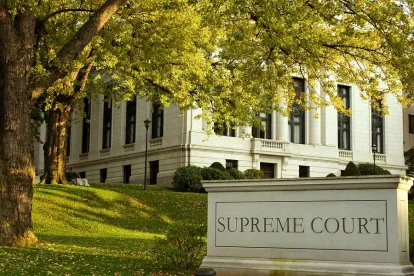Recall that, a couple months ago, the Supreme Court granted the Petition for Certiorari in PDR Network, LLC v. Carlton & Harris Chiropractic, Inc., a TCPA junk fax class action proceeding, setting the stage for what we believe could be the remaking of judicial deference given to agency interpretations of federal regulations. On Monday, March 25, 2019, the Court heard arguments during an hour-long session. While many issues were discussed during the arguments (you can review the entire oral argument transcript), we focus our discussion on two practical issues that stand out as central areas of concern during the questioning by the Justices.
Background
Before we delve into the substance of the oral argument, let’s recap how PDR got here. The case arises from a TCPA junk fax class action in which Plaintiff/Respondent Carlton & Harris Chiropractic, Inc. (“Carlton”) sued PDR for sending a single fax offering a free eBook version of Physician’s Desk Reference. Carlton claimed the fax violated the TCPA because it was an “unsolicited advertisement” sent without its consent.
The District Court for the Southern District of West Virginia dismissed the case after concluding that the fax was not an “unsolicited advertisement” because the fax did not have a “commercial aim.” Specifically, because PDR does not sell the eBook or any of the prescription drugs contained in the eBook, the fax was missing an essential commercial element of an advertisement.
Carlton urged the court to apply its view of a 2006 FCC ruling in which the Commission concluded that “facsimile messages that promote goods or services even at no cost, such as free magazine subscriptions, catalogs, or free consultations or seminars, are unsolicited advertisements under the TCPA’s definition.” The district court found that it was not bound by these few words to simply ignore the fact that PDR’s fax had no commercial purpose. The court engaged in a three-part analysis:
- First, the court concluded that it was not required to defer to the FCC’s 2006 ruling under the Hobbs Act because the Act only requires direct challenges to agency action to be brought in federal appellate courts. Here, in a case between private litigants, there was no direct challenge to the validity of the FCC’s interpretation, and the court “presumes the FCC’s order is valid.”
- Second, even if Carlton was interpreting the FCC’s 2006 ruling correctly, Chevron deference would not require the court to defer to the agency because the statutory definition of “unsolicited advertisement” was not ambiguous; rather it was “clear and easy to apply.” Therefore, the court was not required to defer to a contrary agency interpretation.
- Finally, the court concluded that the FCC’s 2006 ruling, when viewed as a whole, was better understood as retaining the requirement that the sender of the fax have the intention to engage in a commercial transaction with the recipient that was being furthered by first providing a free good or service. The court distinguished that from PDR’s situation, because PDR was giving away a free copy of the book without any intention of luring the recipient into a subsequent commercial transaction.
These issues propelled the case up to the Fourth Circuit, which reversed the district court. In a divided opinion, the Fourth Circuit held that the district court was required to follow the FCC’s 2006 ruling under the Hobbs Act because the Act “stripped” the court of jurisdiction to consider the validity of the ruling. The Fourth Circuit found that the district court refused to follow the FCC’s ruling and that this refusal was the equivalent of considering the validity of the ruling, which it did not have the jurisdiction to do under the Hobbs Act. The Hobbs Act, by the way, provides, in relevant part, that the federal courts of appeal have “exclusive jurisdiction to enjoin, set aside, suspend (in whole or in part), or to determinate the validity of … all final orders of the Federal Communications Commission.”
PDR then petitioned the Supreme Court, which granted review of the question of whether the Hobbs Act required the district court in this case to accept the FCC’s legal interpretation of the TCPA.



 />i
/>i

